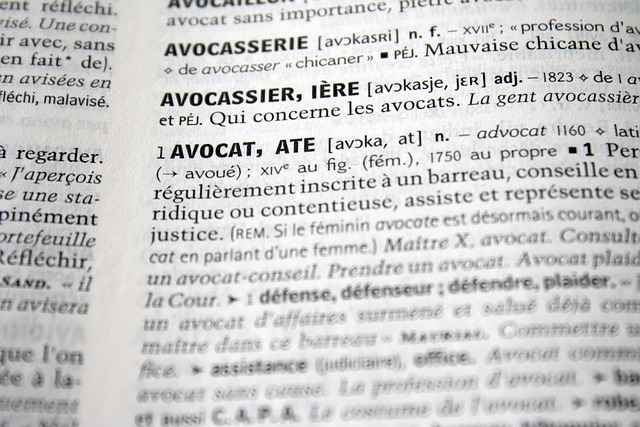Veterans charged with DUI face unique challenges due to hidden disabilities like PTSD and TBI, often leading to classification as "high-risk reoffenders." Effective defense strategies require a nuanced approach, considering military experience, mental health status, and potential triggers. Skilled attorneys specializing in veteran-specific DUI defense offer tailored support, exploring alternative sentencing, negotiating with prosecutors, and presenting expert testimony. Rehabilitation programs focus on long-term healing through therapy and peer support groups to prevent reoffending and facilitate successful reintegration into society.
Veterans returning home face unique challenges, including struggles with mental health and reintegration. Unfortunately, this population is often disproportionately affected by DUI charges due to their vulnerability and past experiences. This article explores tailored strategies for defending Veterans against High-Risk Reoffender DUI management. We delve into the specific impacts of a DUI on veterans, their unique challenges, effective legal representation, and long-term support options, offering insights into helping this deserving group navigate their criminal justice system.
- Understanding High-Risk Reoffender DUI Laws
- The Impact of a DUI on Veterans
- Unique Challenges Faced by Returning Veterans
- Tailoring Defense Strategies for Veteran Clients
- Effective Legal Representation for DUI Cases
- Long-Term Support and Rehabilitation for Veterans
Understanding High-Risk Reoffender DUI Laws

Understanding High-Risk Reoffender DUI Laws is a critical aspect of tailoring effective defense strategies for veterans facing such charges. These laws, designed to address repeat offenders, often carry severe penalties and stricter penalties for individuals deemed high-risk. Factors that contribute to this classification include prior DUI convictions, aggressive driving behavior, or ignoring court orders related to previous cases.
Veterans, due to their unique experiences and potential struggles with reintegration, may fall into this high-risk category. It’s crucial for legal defenders to navigate the nuances of these laws while considering individual circumstances. Effective management involves a strategic approach that could include negotiating plea deals, exploring alternative sentencing options, or advocating for rehabilitation programs tailored to address underlying issues contributing to the DUI incident.
The Impact of a DUI on Veterans

A DUI (Driving Under the Influence) conviction can have severe consequences for any individual, but it can be particularly detrimental for veterans. Many veterans face unique challenges that can contribute to their decision to drive while impaired—issues such as PTSD, depression, and substance abuse disorders are not uncommon in this demographic. When coupled with a DUI charge, these problems can exacerbate existing conditions, making it harder for them to reintegrate into civilian life.
The label of ‘high-risk reoffender’ often follows veterans who are convicted of DUI, which can make it even more challenging for them to obtain gainful employment and housing. This cycle of adversity can lead to increased social isolation and potential escalations in substance abuse. Effective DUI defense tailored to veterans must address these complex issues, offering not just legal representation but also a supportive network to help them navigate this difficult period and manage their high-risk DUI situations responsibly.
Unique Challenges Faced by Returning Veterans

Returning veterans often face unique challenges when it comes to DUI (Driving Under the Influence) cases. Post-traumatic stress disorder (PTSD), brain injuries, and other mental health issues commonly experienced by veterans can impact their judgment and decision-making abilities, increasing the likelihood of high-risk reoffending if not properly managed. These hidden disabilities can make traditional DUI defense strategies less effective, requiring a tailored approach to address the specific needs and complexities of veteran clients.
The term “high-risk reoffender” is often associated with individuals who have multiple DUI convictions or exhibit aggressive behavior. Veterans facing DUI charges may fall into this category due to their unique circumstances. Effective DUI management for these individuals should consider their military experience, mental health status, and any potential triggers that could lead to impaired judgment. A comprehensive defense strategy tailored to these challenges can help reduce recidivism rates and promote successful rehabilitation for returning veterans.
Tailoring Defense Strategies for Veteran Clients

Many veterans face unique challenges when navigating the legal system, especially in cases involving DUI (Driving Under the Influence). A tailored defense strategy is crucial for veteran clients, as they may fall into high-risk reoffender categories and face stringent penalties. These individuals often struggle with post-traumatic stress disorder (PTSD), substance abuse, or other co-occurring disorders that can impact their decision-making and behavior.
Lawyers representing veterans must consider these complex factors when building a defense. This may involve gathering expert testimony to address the client’s mental health issues, presenting alternative explanations for their actions, and advocating for reduced sentences or specialized treatment programs rather than strict incarceration. A nuanced approach ensures that the veteran receives fair representation, taking into account both their military service and the specific circumstances of the DUI incident.
Effective Legal Representation for DUI Cases

Effective legal representation is paramount in DUI cases, especially for veterans who face unique challenges navigating the justice system. Veterans, having served their country, often struggle with invisible injuries like post-traumatic stress disorder (PTSD) or traumatic brain injuries (TBI), which can significantly impact their decision-making abilities and behavior. Skilled attorneys specializing in DUI defense tailored to veterans understand these complexities and offer strategic defenses.
They advocate for evidence-based approaches, considering the individual’s circumstances and any mitigating factors. For high-risk reoffenders, managing a DUI charge requires a comprehensive strategy that may include exploring alternative sentencing options, negotiating with prosecutors, or presenting expert testimony regarding the client’s unique situation. The goal is to achieve the best possible outcome while ensuring veterans receive tailored support throughout the legal process.
Long-Term Support and Rehabilitation for Veterans

Many veterans face unique challenges when it comes to DUI (drunk driving) cases, often due to co-occurring disorders or trauma experiences. These individuals may struggle with addiction and mental health issues, making long-term support and rehabilitation crucial. The goal is not only to defend against DUI charges but also to provide a comprehensive approach to healing. This tailored help involves addressing the underlying causes of impaired driving, which frequently stems from post-traumatic stress disorder (PTSD) or substance abuse disorders.
Rehabilitation programs for veterans often incorporate specialized therapy, peer support groups, and aftercare planning. By focusing on DUI management in the context of high-risk reoffender prevention, these programs aim to empower veterans with the tools needed to stay sober and successfully reintegrate into society. This holistic approach recognizes that addressing impaired driving is just one part of a broader journey towards recovery and personal growth.
Veterans facing DUI charges require specialized legal defense strategies that address their unique circumstances. By understanding the complexities of high-risk reoffender DUI laws and tailoring support for returning veterans, we can ensure effective legal representation and facilitate access to long-term rehabilitation. This comprehensive approach is vital in helping veterans overcome these challenges and rebuild their lives post-incarceration.






